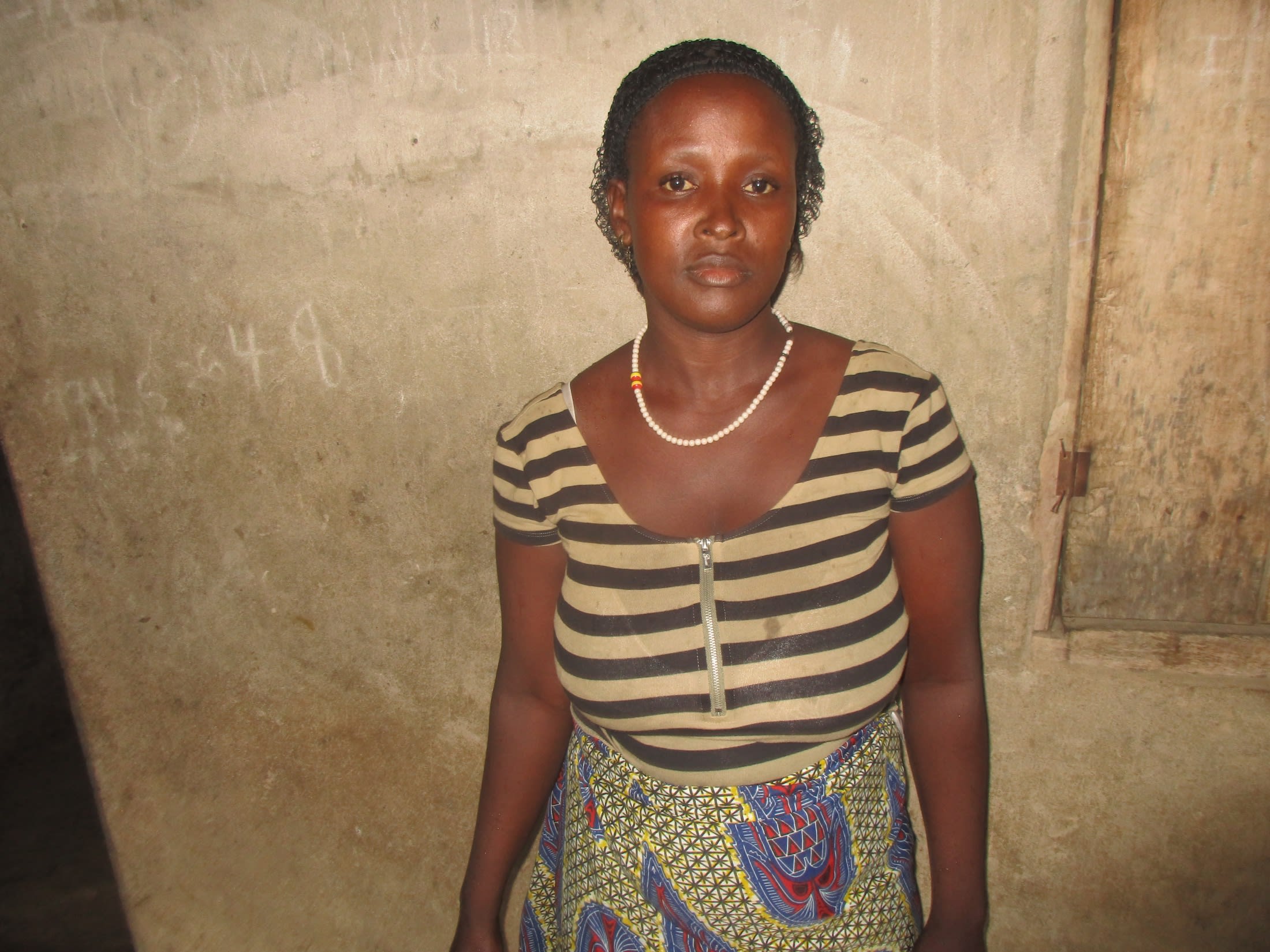The 205 community members in Madina use a protected hand-dug well with a hand pump as their primary water source. Still, the well is unreliable and insufficient to meet the community's needs even on its best day.
Because of the high demand, the water level falls quickly, and the pump is under great stress, leading to regular breakdowns. The well runs dry consistently, especially during the dry season, quickly turning a difficult situation into a hectic one.
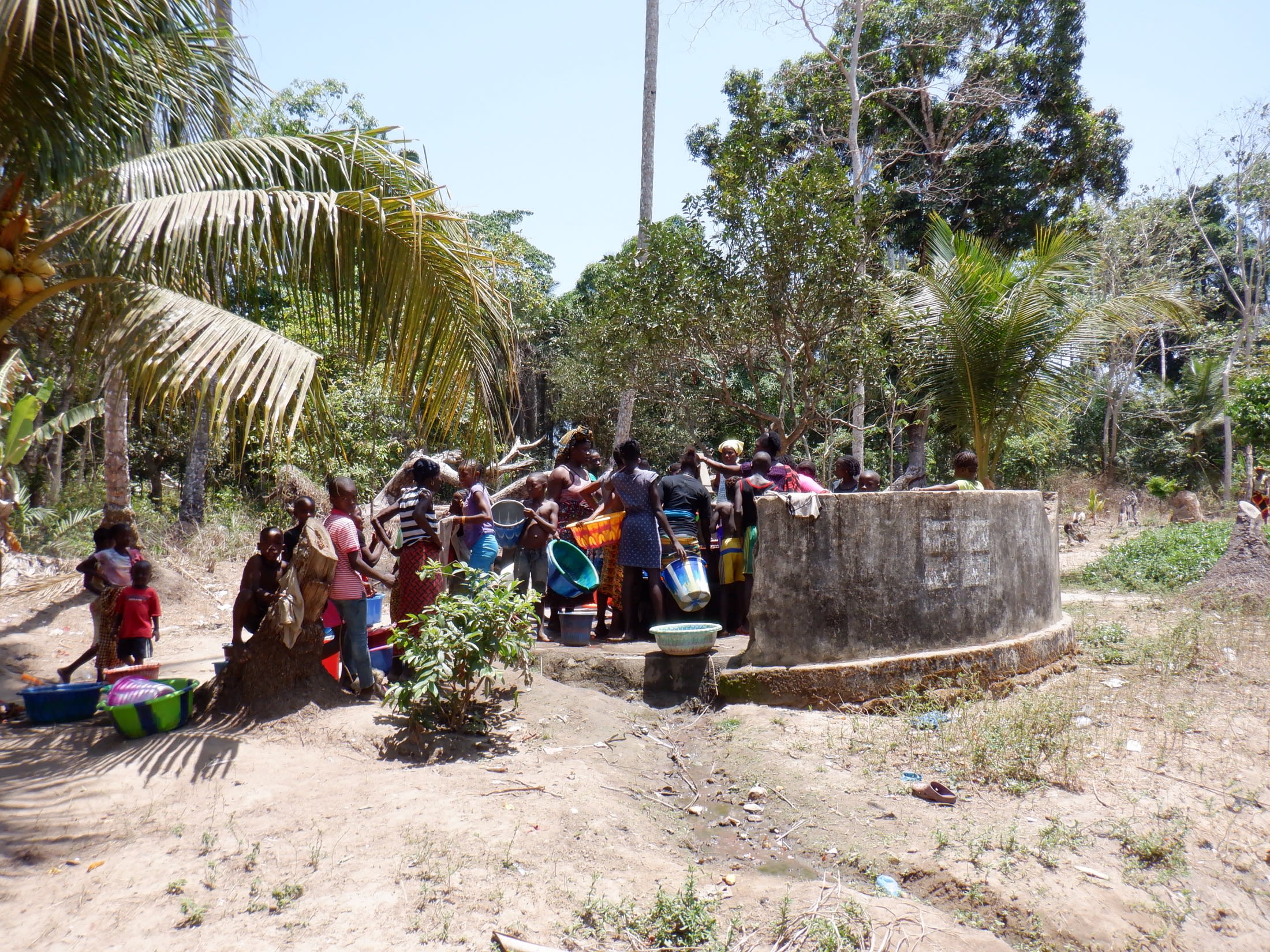
When the well runs dry, community members expend a lot of time and energy going to another crumbling well on the far reaches of the community to find water.
"The pump is overcrowded during the morning and evening hours when everyone is desperate in fetching water. I see those moments as particularly challenging," said 30-year-old farmer N'mah Kamara, shown below.
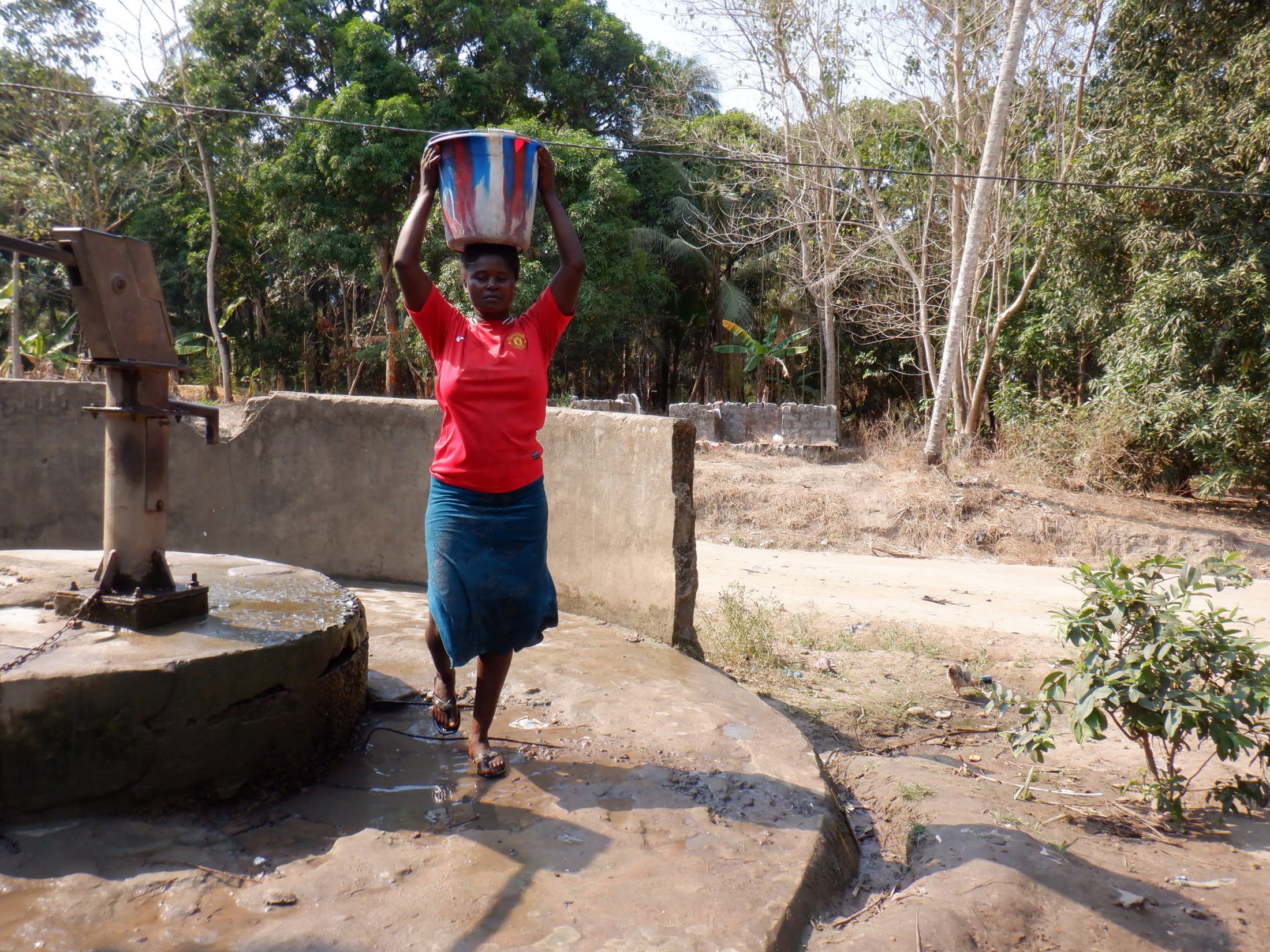
She continued, "The competition on fetching water is very affecting. It is causing delays on getting other activities completed. When our pump is not providing water, I could not make enough trips from the other pump down [to] the wharf. The distance is far, and the hill is difficult to climb with water on my head. This has been the cause of pain all over my body."
The school children in the community are also adversely affected since they carry the majority of the responsibility for collecting water. They set off to fetch water early in the morning before school and again immediately when they return home. They can be seen all over the community with buckets or jerrycans searching for water, sometimes until late in the evening. They are exhausted, and the burden feels overwhelming.
"I must fetch water every day before and after school. When the pump in this community is not providing water, I will fetch water from the well at the wharf that is far away. It is not easy to fetch water from that well because of the long distance and the hill on the road," said Kadiatu B., 14 (shown in the photo below carrying water on her head).
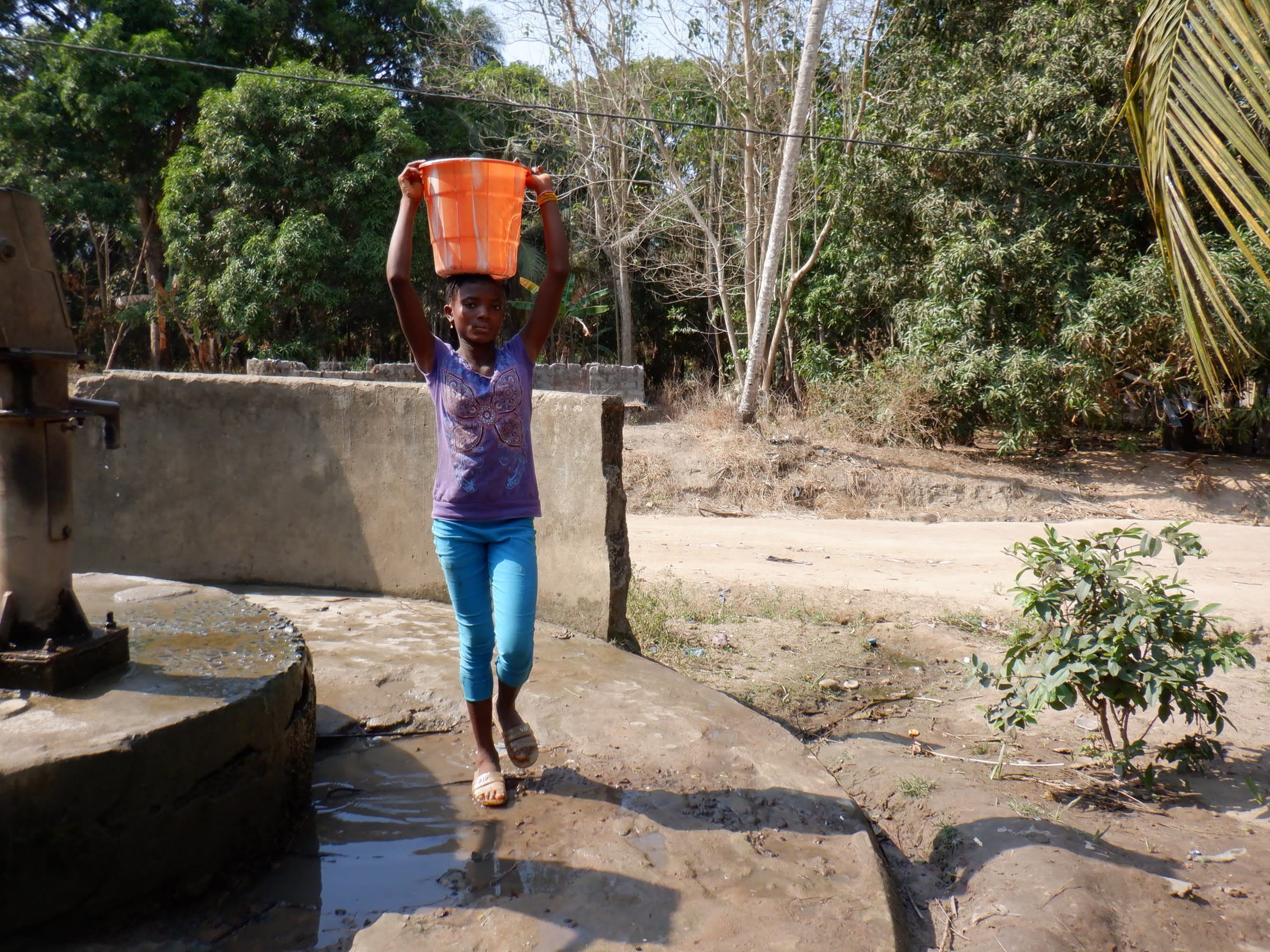
"Sometimes, I had a headache after I had fetched enough water. It is difficult for me to do my daily activities on that day, and it would even lead to my absence from school," concluded Kadiatu.
Those who rely on water for their daily incomes, like the many fishermen in this coastal community, also suffer. To wash their fish and dry them properly to preserve them, they need water. Without it, the fish rot or are poorly preserved, and valuable income is lost.
Even basic daily activities like bathing and washing clothes get delayed or neglected because any water collected must be prioritized for drinking and cooking.
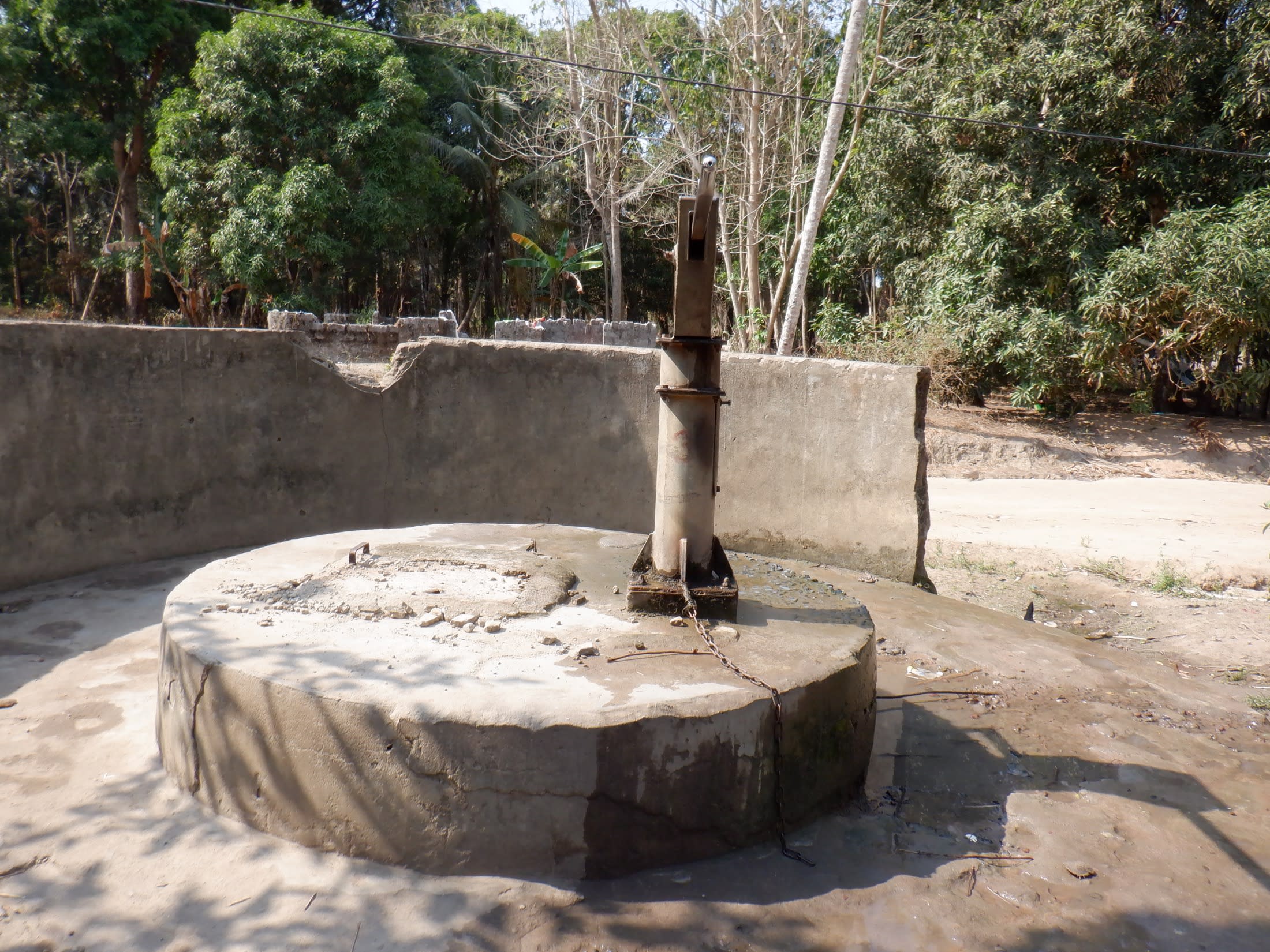
The well (in the photo above) has not been chlorinated for at least two years. There is a broken perimeter fence letting domestic animals have access to drink and defecate near the well, a cracked well pad, and no drainage channels.
The people of Madina need a deeper, more reliable, protected source of water that is convenient to access so they can quickly collect water and still have time to invest their energy into other valuable purposes.
Here's what we're going to do about it:
Well Rehabilitation
The well marked for this overhaul is dry for a few months every year and needs major work to supply adequate, clean water to the community year round. The pump will be removed, and a hand auger will be lowered inside and powered by a drill team. This hand auger will allow the team to drill several meters deeper to hit a sufficient water column that will ensure the well supplies water throughout all seasons.
As the team drills, casing will be installed, transforming the bottom of this hand-dug well into a borehole. PVC piping will connect this lower system directly to the pump, a construction that we know will also improve the quality of water.
Once this plan is implemented, everyone within the community will have access to safe drinking water in both quality and quantity, even through the dry months.
Hygiene and Sanitation Training
There will be hygiene and sanitation training sessions offered for three days in a row.
After our visit, the hygiene and sanitation trainer decided it would be best to teach community members how to build a tippy tap (a hand-washing station built with a jerrycan, string, and sticks). They will use these tippy taps for handwashing demonstrations, and will also teach about other tools like dish racks and the importance of properly penning in animals.
These trainings will also strengthen the water user committee that manages and maintains this well. They enforce proper behavior and report to us whenever they need our help solving a serious problem, like a pump breakdown.

 Borehole Well and Hand Pump
Borehole Well and Hand Pump



















